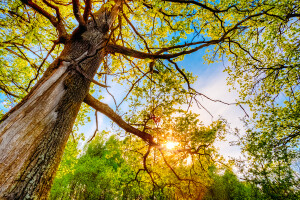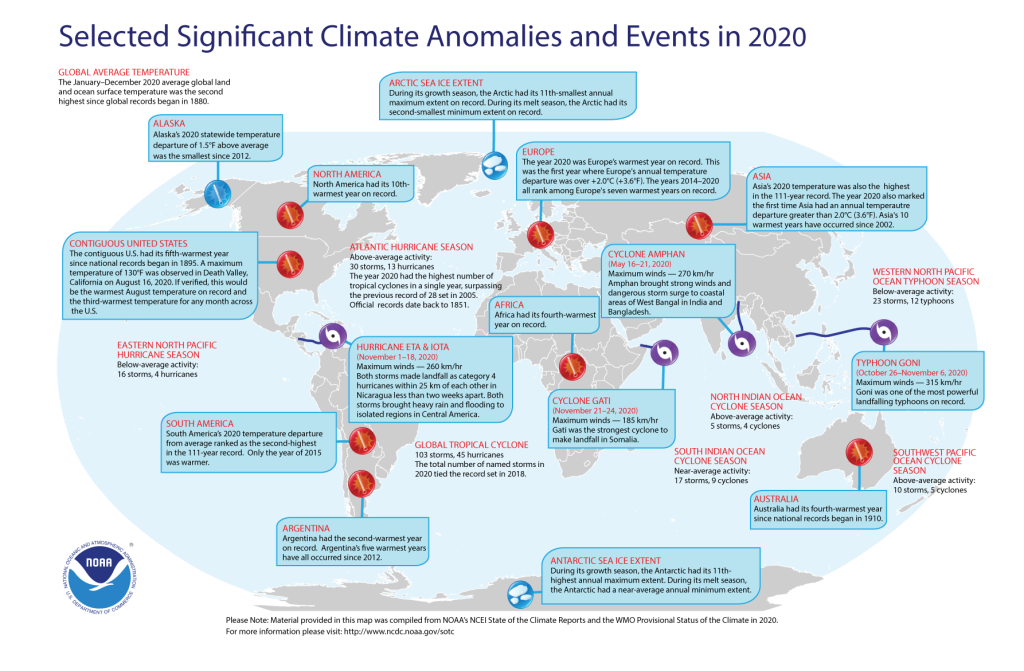Gambling on Planetary Survival
Apr 22nd, 2021 | By admin | Category: Environment/SustainabilityBy Suzanne York.

Spring Sun Shining Through Canopy Of Tall Oak Trees. Upper Branches Of Tree. Sunlight Through Green Tree Crown – Low Angle View.
We humans are running a very curious experiment on how much we can take from the planet before Nature tires of our exploitation. Whether we survive to see the end of this experiment is the big question.
There is a constant stream of news, reports, videos, tweets and discussions on the problems modern society has created, for all living beings. We should be doing everything we can to change our course and live as part of the web of life, not above it. Yet, as we approach another Earth Day, it’s clear that either hubris, arrogance, ignorance or blind faith guide how many people choose to live on our little blue dot. While it’s true that change can happen quickly, we are up against the clock.
For the first time in recorded history, the concentration of atmospheric carbon dioxide rose above 420 parts per million. This is a big deal. The Washington Post calls it “a disconcerting milestone in the human-induced warming of the planet, around the halfway point on our path toward doubling preindustrial CO2 levels.”
Carbon dioxide emissions are forecast to jump this year by the second biggest annual rise in history. And shockingly, demand for one of the dirtiest and deadliest of fuels – coal – is expected to rise sharply this year.
The stable climate that has been the hallmark of the Holocene epoch – the period when humans began undertaking agriculture practices that enabled us to thrive – can no longer be counted upon, and that should scare us.
A brief look at the news of the past couple of weeks show the signs of a changing climate and planet are everywhere – drought in South Africa and California, snow in Missouri, heatwaves in Bangladesh and Alaska, floods in Angola. The list goes on and on. We don’t even have to pay that much attention to realize what is taking place before our eyes, should we choose to see it.
As the world nears 8 billion people on Earth, it is obviously imperative to change how we live, and to make sure we live in balance with the other species with whom we share the planet.
Last month, the Council for the Human Future, an organization with a mission to raise global awareness of humanity’s growing existential emergency, comprising ten catastrophic risks, and help devise solutions to them all. They hosted a conference with several other partners where a diverse group of speakers addressed our pressing problems. Experts talked about the following critical subjects and solutions:
- Renewable food systems
- Rethinking the global economy
- Rewilding
- Why we can’t afford to ignore human population growth
- No new fossil fuel developments of any kind
One promising idea brought up by one of the speakers, Professor Gerardo Ceballos, is an initiative that will hopefully gain a lot of traction. It is the People v Extinction global platform. This concept calls for mass engagement and action in response to species extinction. Around one million animal and plant species are threatened with extinction in the coming few decades. As the platform, notes, we all have a part to play. Furthermore, we all share some responsibility, though certainly some of us more than others.
Professor Emeritus Paul Ehrlich also called for collective action. He noted what is in some ways, the crux of the main problem today, that humans don’t see or notice background changes. We see rapid change but not slow-moving change.
We have a tremendous number of solutions on hand today to change our negative trajectory. What is needed most is the public and political will to do what must be done to keep the planet thriving. Will we succumb to hubris and arrogance that someone else will come to save the day? Will we burden future generations with all of our problems so we aren’t inconvenienced?
Until we face the fact that how we live is no longer working (and when it did, it only worked for a small minority), we only hurt ourselves. We need to look in the proverbial mirror and ask if the way most of us live is fair and just for current and future generations, and for all species. If we don’t, all the Earth Days in the world won’t matter.
Suzanne York is Director of Transition Earth.

